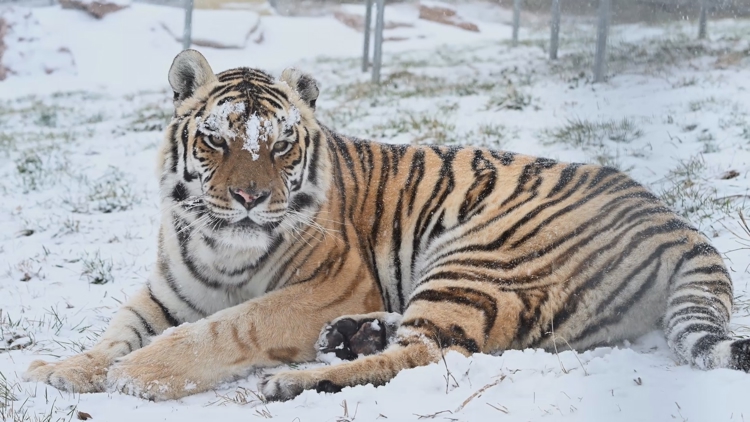Wildlife refuge in Arkansas seeking donations to upgrade heating for animals

Turpentine Creek Wildlife Refuge, home to 100 rescued animals, is asking for donations to upgrade heating while they combat extreme winter costs.
EUREKA SPRINGS, Ark — As winter weather continues to challenge daily operations, Turpentine Creek Wildlife Refuge is making a significant push to upgrade heating for its rescued animals.
With 102 habitats housing nearly 100 animals, maintaining a warm and safe environment is a top priority for the nonprofit sanctuary.
“We make a budget every year, and when we were going through the numbers, we realized we were already going to be closed 17 days because of the winter weather we’ve been having, we decided we got to get busy,” Tanya Smith, president and founder of Turpentine Creek Wildlife Refuge, said. “The electric bill came in at a little over $8,000 last month. That’s just the electric — that’s not considering the propane and everything we use out here.”
The refuge cares for various big cats, including lions, tigers, cougars, and leopards, as well as bears. Many of these animals were rescued from neglectful or abusive situations and rely on the sanctuary for lifelong care.
“Without us, they would be destroyed, and here at the sanctuary, they live really long lives,” Smith said. “We’ve had three tigers over the 33 years that have lived to be almost 25. That’s just crazy when you think about the geriatric care that we provide to our animals.”
To combat the freezing temperatures, the refuge uses a combination of electric and propane heating. However, not all habitats are fully equipped yet.
“We’re still shy about 27 [dens] that need heat,” Smith said. “Tigers love the cold, but any time it’s freezing, it’s important that we provide them someplace where it can at least be 50 degrees in their den.”
Beyond heating, winter weather presents other logistical challenges, such as road maintenance and water access.
“We are watering the animals three to four times every day, breaking up their water bowls, making sure they can get a drink,” Smith said. “[Interns] are out there shoveling snow from every habitat — when there are 100 habitats, that’s a lot of work.”
The total cost for these upgrades and ongoing winter expenses is estimated at $200,000. The refuge has launched a matching donation program to help meet this need.
“Right now, you can double your donations through our matching fund program,” Smith said. “We do have a $100,000 match that was gracefully put up by some of our donors, the Goochs, and we’re just so thankful for that.”
While tigers are well-suited to colder temperatures, other animals, such as African servals and caracals, require special accommodations.
“We actually have buildings for all of our African cats,” Smith said. “They don’t grow the same winter coats that the big tigers will grow.”
In addition to donations, the refuge offers volunteer opportunities for those looking to contribute their time and skills.
“We’d love to have help with yard work, maintaining habitats, and even building new benches and toys for the animals,” Smith said.
For those interested in supporting the sanctuary, donations can be made at their fundraiser page. You can also find more information online at turpentinecreek.org or tcwr.org.
The refuge also encourages visitors, even during winter.
“Come out whenever we’re open. The animals do love the cold, so come on out and enjoy it. Bundle up!” Smith said.
For those unable to visit in person, the sanctuary offers live-streamed footage of some of its cats on explore.org.
“You can see tigers running and playing or sleeping — you never know what they’re up to!” Smith said.
As the refuge continues to care for its animals through the cold season, Smith remains optimistic about the community’s support.
“We appreciate everything anybody can do to donate towards the cause,” she said.

